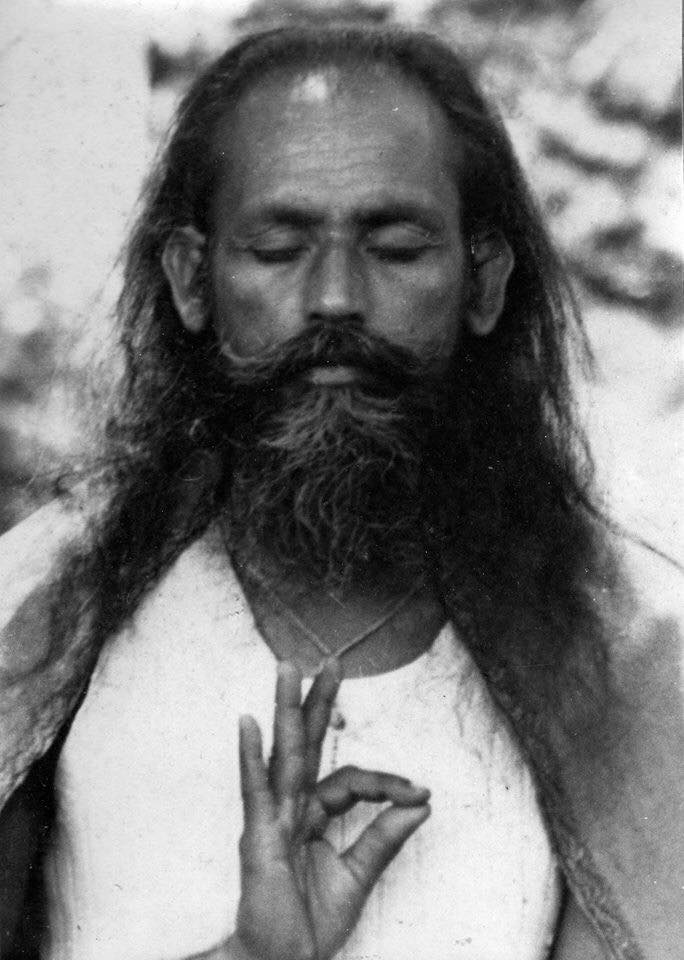Commitment to Spiritual Practice

Why is it so difficult to commit to regular practice? The answer lies in our thoughts and desires. Everyone wants to be happy and live in peace, but. we’re easily distracted from our goal by the prospect of short-term pleasure. There is nothing wrong with having fun (in fact, it’s necessary), but if we continually choose that at the expense of spiritual practice, we’re taking a wrong turn in the quest for peace.
The mind doesn’t accept sadhana because it doesn’t see any physical gain from doing sadhana. If sadhana paid $50 per hour, then everyone would do it willingly. The mind always makes excuses for not doing sadhana. “Oh, I have work to do. Last night I went to sleep late and I should sleep longer. I am tired. Not today, tomorrow for sure, etc.” These excuses never end. We make time for all the worldly things but make no time for sadhana, which is the most important thing in life. But we do like its results, which are peace, happiness, and enlightenment.
The first-world culture we live in presents us with so many distractions that it can be hard to focus on and commit to one thing,. We have so many options open to us that sometimes we get confused about what is really important to us. We think that having many options gives us freedom. However what we think of as freedom sometimes translates as, “Freedom to do what I want when I want .”
It’s only desire that wipes out the ability to discriminate and so a person starts jumping from one thing to another.
Many years ago when I was waffing about making a decision, Babaji wrote to me: Stick to your convictions, if you have any. That was the most direct, and the fiercest, advice Babaji had ever given me and it shook me to the core. Some serious self-study was needed to find out if I did indeed have convictions, to discover what they are, and to make decisions based on those values.
Often Babaji would answer questions from young people who were wondering what to do in their lives. Rather than supporting their continuing quest for more and more experiences he often said something like, “Go back to school.” The message was: Do something and stick to it. Make a commitment.
Paradoxical as it may seem, freedom comes from having fewer options. As an artist I see it as painting with a limited palette. Years ago, in preparation for a gallery show, I was asked to produce a series of paintings on specific themes and with a limited palette of colours (which I chose, and limited myself to). From the outside this might appear restrictive and not very enjoyable; what actually came out of it was a very productive period during which I produced many paintings. I found it was freeing to have these limitations, and the work flowed easily.
Desire makes desire. It has no limit. When desires are limited it gives peace.
In relationships we’re also working with limits. Nobody ever finds a mate who meets all of our “requirements”. You may meet someone who has many of the qualities you’re looking for, but there’s always that little something that you would prefer to change in the other person . Making a commitment is the relationship version of working with a limited palette. Can you accept everything the other person brings? Effort and persistent relationship practice are required, but it’s so much simpler if you can truly say yes, I can work within these limits. What comes out of that kind of commitment offers more possibility of joy and ease.
This is not to imply that it is never okay to leave a relationship, but it is important to be clear about our motives. Is the desire to leave based on our safety and well-being, or are we restless because we want a different relationship that we think will be easier and more fun?
There is no peace if there is no limitation of desires. That’s why we make rules – to imprison our desires.
On our spiritual path, as in everything else, we like things the way we like them, yet freedom comes from letting go of wanting everything to go our way. Krishna Dass describes chanting as “polishing the dust off the mirror of the heart,” then he adds, “But you gotta do it. You don’t do it, nothin’ happens.” Babaji uses the analogy of digging a well. If you dig a lot of shallow wells, you won’t reach water. To reach water, you’re better off digging one deep well. That takes commitment; you have to be willing to keep digging.
It took me a long time to commit to a daily meditation practice. Finally I made a vow to myself because I knew that was something I would take seriously. Without it, it was too easy to say Not today, but tomorrow for sure.
If we put a limit on our desires, there will be a limit to our pain. Gradually we can reduce the limit, and one day the desires will be decreased so much that we will not even think about them. That state of mind is peace.
As in relationships, many people try different spiritual paths rather than committing to one. This is not a criticism; none of this is about right or wrong. The question is: What is your aim? If you want peace, eventually you will find that you have to limit your desires. That happens slowly at first, but after a while you start finding that the distractions you used to hanker after no longer satisfy, and they start dropping away. More and more you find that daily spiritual practice brings more peace. If you commit to continuing to do these practices every day for a long time, they will change your life.
If we want to attain something, we put all our energy into it. For example, those who participate in the Olympics or those who climb mountain peaks practice every day. In the same way, if we really want peace and want to overcome the ignorance of this world, we have to practice every day.
Sadhana must be regular and then you will see that worldly pleasures and pains come and go, but your mind will remain unaffected.
The best thing for attaining peace is to keep the desires within a limit and accept yourself. Accept the marriage relationship. Accept old age, and accept death. There will be contentment in life, and contentment is peace, love, God.
A method for achieving peace: First put limits on your desires. Then gradually reduce the limits. That will automatically limit the pains. When the desires are reduced to nothing, the burden of pain will be lifted from your shoulders forever.
Wish you happy and in peace.
Contributed by Sharada
All quotes in italics are from writings by Baba Hari Dass
 Sharada Filkow, a student of classical ashtanga yoga since the early 70s, is one of the founding members of the Salt Spring Centre of Yoga, where she has lived for many years, serving as a karma yogi, teacher and mentor.
Sharada Filkow, a student of classical ashtanga yoga since the early 70s, is one of the founding members of the Salt Spring Centre of Yoga, where she has lived for many years, serving as a karma yogi, teacher and mentor.
